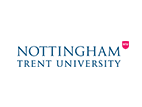Semester One Global Financial Markets (20 credits) Financial markets enable the transfer of funds from those who want to save to those who want to borrow to invest in productive activity. This module deepens the analysis of the major markets, participants and instruments in a global context. Financial Statement Analysis (20 credits) This module aims to analyse is the decision making process of internal and external stakeholders. It will develop your critical understanding of financial reporting through in depth application and evaluation of a range of analytical techniques. Corporate Finance (20 credits) This module is designed to give you a deeper knowledge of theory and practice in the key aspects of corporate finance, and allows you to explore how various aspects of corporate finance are interrelated. You will assess the impact of financial decisions with respect to investments, financing and the management of risk and develop skills in critical analysis and evaluation. Semester Two Valuation of Investment Products (20 credits) The module is concerned with investment product value assessment and financial management. The initial thesis is that banks create value through investing in investment products that produce a positive net present value. However companies may also create value by growth (e.g. organic or via M&A), financing activity and through the management of risk. The focus of the module is on these themes. Hence the module will cover the key theories of corporate finance and valuation, and consider how these may be applied in practice. Derivatives Markets (20 credits) This module will enable learners to explore and develop their understanding of financial risk and derivative markets in terms of theory, concepts and hedging techniques. You will evaluate the types of financial risks that can be hedged with derivative instruments and discuss why derivative markets provide an efficient hedging tool. Investment and Portfolio Management (20 credits) This module examines appropriate Investment and Portfolio Management theory. You will have the opportunity to put this theory into practice principally via the construction and running of a portfolio of equities. Semester Three In your final semester you'll take on a major project, giving you a fantastic opportunity to use the theories and knowledge you've gained to produce a challenging, meaningful piece of work. Projects include: Consultancy Experience Project (40 credits) Working as part of a team, you'll undertake focused research, developing your professional skills, managing a complex project and delivering results in a real business situation. You'll present your findings to the client and learn valuable project management tools and concepts. Internship Experience Project (40 credits) On an internship of 12 weeks or more, you'll apply the theories you've learnt to a substantial, live project. This will involve focused research, developing skills, managing a complex project and delivering results in a real business situation. You'll also learn project management tools and concepts. Business Research Project (40 credits) This project is a more traditional piece of independent research, creating an academic research paper, presentation and methodological reflection. Because we believe experiential learning is so important, this project is only available to students with significant prior work experience or a desire to progress to a PhD. Global Experience Project (40 credits) This exciting project gives you the opportunity of travelling overseas to attend a summer school at one of our partner institutions. You'll produce a piece of academic work drawing on either a concept from the summer school or a case study based on a company local to the host institution. For more information about semester three options please visit our Experiential Projects page.
 日本
日本
 韩国
韩国
 英国
英国

























